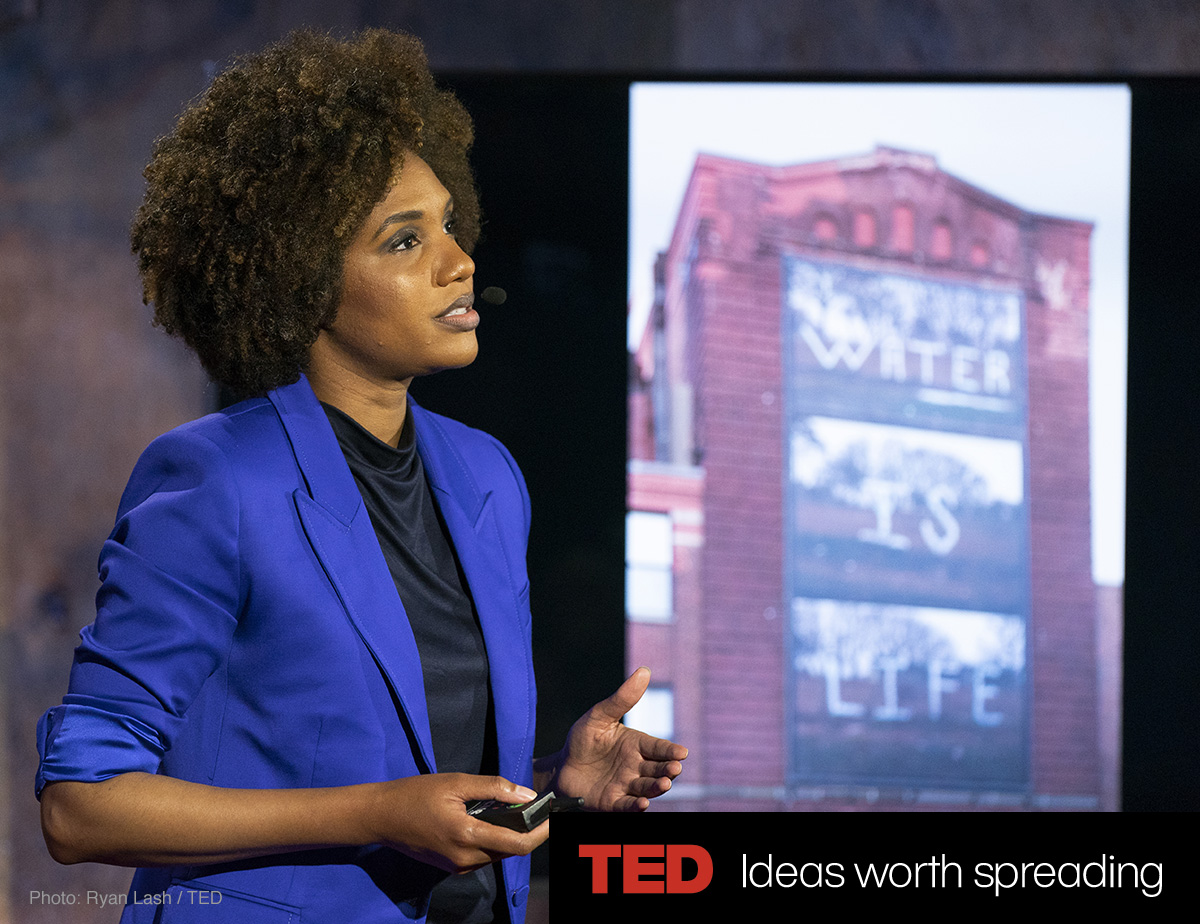LaToya Ruby Frazier (2019)
“In my photographs, I make social commentary about urgent issues I see in the communities or places I’m in. I use them as a platform to advocate for social justice and as a means to create visibility for people who are on the margins, who are deemed “unworthy”: the poor, the elderly, anyone who is other, anyone who doesn’t have a voice. I create depictions of their humanity that call for equity. That is what is dear to my practice and my position as an artist.”
— LaToya Ruby Frazier
Since the early 2000s LaToya Ruby Frazier has developed a documentary practice that is both personal and engaged with the social, political, and economic realities of the United States. For her exhibition at Mudam, Frazier presents the emblematic photographic series The Notion of Family, developed between 2001 and 2014 around three generations of women – her grandmother, mother and herself – witnessing the decline of her hometown of Braddock, the former steel capital of the suburbs of Pittsburgh, Pennsylvania, that would subsequently become a ghost town, with two more recent bodies of work that continue her focus on the working classes and the interaction between personal life and sociopolitical issues. On the Making of Steel Genesis: Sandra Gould Ford (2017) is the outcome of a close collaboration with Sandra Gould Ford, a photographer and writer who was employed in the steel industry of Pittsburgh and who documented life in factories that were closing down; Et des terrils un arbre s’élèvera (2016-2017), is the result of an ambitious project near Mons, in Borinage Belgium, created in collaboration with former miners and their families. This publication, published on the occasion of her show, features works from the three series; a conversazione between the artist, Christophe Gallois, and Claire Tenu; and an essay by Elvan Zabunyan.
Courtesy of: Mousse Publishing









